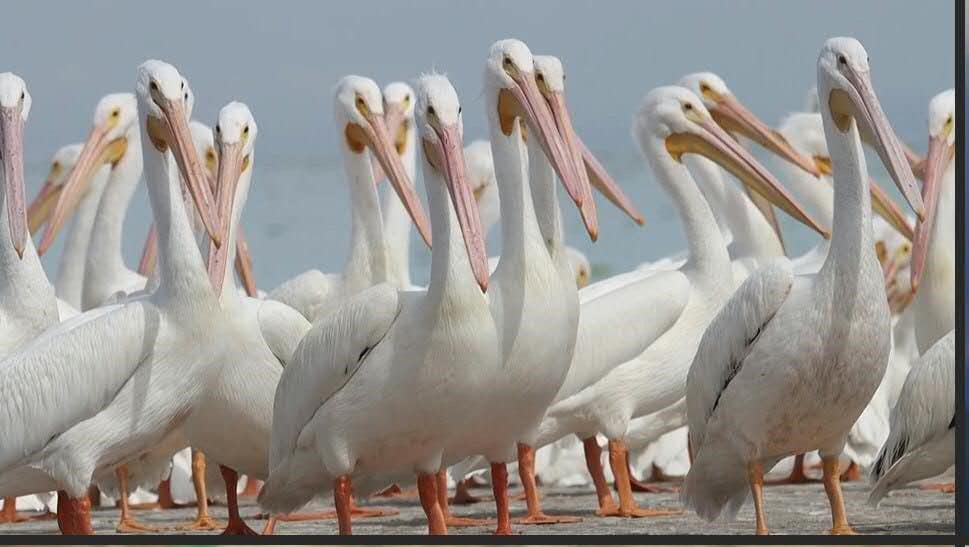Rampant exploitation of nature is a threat to the well-being of billions of people across the world who rely on wild species for food, energy and income, United Nations biodiversity experts said Friday.
From fishing and logging to the use of wild plants in medicines and perfumes, societies across the planet use species that have not been tamed or cultivated, with annual global legal and illegal trade in the hundreds of billions of dollars.
But as humans drive alarming biodiversity loss — and climate change threatens to accelerate the destruction — the UN’s science advisory panel for biodiversity, IPBES, called for “transformative changes” in our relationship with wild species.
IPBES, which has previously warned that a million species are at risk of extinction, said halting overexploitation was “critical to reverse the global trend in biodiversity decline” and hailed the crucial role of indigenous communities in protecting nature.
Its report, written by dozens of experts and indigenous advisers and approved by 139 member states, comes as the UN steers an international process to protect nature from human destruction in the coming decades.
“The use of wild species is absolutely crucial for humanity and nature,” the IPBES report co-chair Jean-Marc Fromentin told AFP, adding it was a “key issue for food security”.
UN experts estimate “about 40 percent of humanity” relies in some way on wild species, he said: “It’s much bigger than you think.”
Food and fuel
Overall, 50,000 species are used for food, energy, medicine, material and other purposes around the world, the report said, with more than 10,000 different types harvested for human consumption.
Wild plants, algae and fungi provide food and income for one in five people globally, the report said, while some 2.4 billion people rely on wood for cooking.
IPBES estimated 70 percent of the world’s poor depend directly on wild species and businesses linked to them.
But they are not the only ones.
“City dwellers in rich countries might not notice it, but wild plants are used in medicines or cosmetics, you eat wild fish and there is a good chance that your furniture comes from wild trees,” said Fromentin.
Even foraging remains an important activity for people in North America and Europe, with notably high rates in Eastern Europe, according to the research, which said there is “growing demand for wild foods” for high-end restaurants.
Resource ‘robbery’
The global market for these species is big business.
Wild trees account for two thirds of global industrial roundwood, while trade in wild plants, algae and fungi is a billion-dollar industry.
But global trade can become disconnected from sustainable supply, with surging demand risking species and ecosystems, and the report said there was an “urgent” need for effective policies that adapt to local needs.
One major issue is illicit trade in wild species, estimated to be worth between $69 billion and $199 billion a year, which IPBES said was the third largest illegal market after human trafficking and drugs.
While this largely targets trees and fish, the report said even smaller-scale trade in rare animals and plants, like orchids, can have devastating effects.
This trade “robs countries, indigenous people and local communities of access to their own resources and safe livelihoods,” said Inger Andersen, head of the UN Environment Programme.
Citizen of nature
Letting the natural world thrive is better business.
Tourism that is based on observing wild species, was a key reason that protected areas globally received eight billion visitors and generated $600 billion every year before the Covid-19 pandemic.
Meanwhile, fisheries that are well managed often have increasing abundance of fish.
Atlantic bluefin tuna, for example, was fished to the brink by an explosion of demand for the sashimi market in the 1980s.
Initially “scientific advice carried little weight against fisheries lobbies and national interests”, IPBES said, but a new strategy launched in 2007 has managed to rebuild the population.
In general, overexploitation is the main threat to wild marine species, it said, as well as a key threat to land and freshwater ecosystems.
IPBES called for policies that support the land rights of indigenous people, who steward vast biodiversity-rich areas and have often been underappreciated or pushed off their traditional homelands in the past.
The report said much can be learnt from indigenous communities, including different ways to measure species health, like the amount of fat on a caribou, or the changing flavour of fish.
Co-author John Donaldson said the process of integrating indigenous knowledge with more science-based research had been “quite revelatory”.
The report urged a view of humanity as “a member or a citizen of nature among others”.
It said the concept in many societies that humans are separate from and dominant over nature had “led to major environmental crises, such as climate change and biodiversity decline”.








